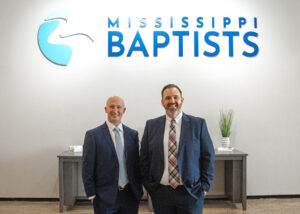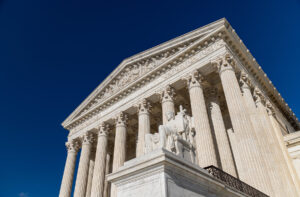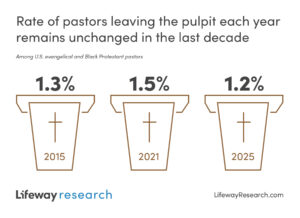WASHINGTON (BP and local reports) – Anticipating that the U.S. Supreme Court will severely limit or possibly strike down Roe v. Wade thanks to a Mississippi case currently before the court, pro-life lawmakers in dozens of states including Mississippi appear to be prepared for a day when legal abortion is no longer a nationwide reality.
Mississippi lawmakers in 2018 passed a law to ban abortions after 15 weeks gestation. A lawsuit filed to prevent the law from going into effect wound its way to the Supreme Court, which heard arguments in Dobbs v. Jackson Women’s Health Organization on December 1 and is expected to hand down a decision some time this summer.
Thomas Dobbs is the State Health Officer at the Mississippi Department of Health. The Jackson Women’s Health Organization is the state’s sole operating abortion clinic on North State Street in Jackson. Roe v. Wade is the 1973 Supreme Court decision that legalized abortion in the U.S.

Legislatures in 34 states are focusing on what happens after that decision, said Katie Glenn, government affairs counsel for Americans United for Life in Washington, D.C. “A lot of states are introducing ‘trigger laws’ or conditional laws that would take effect if Roe is overturned.”
That means state-by-state abortion bans waiting to be enforced would be take effect if justices overturn Roe based on the Mississippi case.

Chelsea Sobolik, public policy director for Southern Baptist’s Ethics & Religious Liberty Commission (ERLC) in Nashville, told Baptist Press (BP) in written comments, “As we await the Supreme Court’s ruling in the Dobbs case, we would encourage every state to prepare now for a potential post-Roe world where abortion becomes unnecessary and unthinkable.”
If the justices overrule Roe, AUL’s “number one goal is going to be working with states that have laws that are currently enjoined [set aside by courts] to get those laws in effect,” Glenn said.
State lawmakers also are seeking to provide resources for women and families in the event the high court reverses Roe, Glenn said. If abortion becomes illegal, there “will still be women and families that need support,” she told BP, “so how can the government either get out of the way so that private charities, churches, pregnancy centers can really step up and help those women, or how can the government partner with those groups to help facilitate the kinds of support that we know our neighbors are going to need?”
Meanwhile, New Jersey enacted legislation in January to protect abortion as a fundamental right. Kentucky and Vermont will decide in November on vastly differing amendments to their state constitutions that were forwarded to voters by their legislatures.
Kentucky citizens will vote on a measure that spells out the state constitution does not protect a right to abortion or require public funding of abortion. Vermont voters will make a decision on a state constitution amendment that would enshrine the right to abortion.











